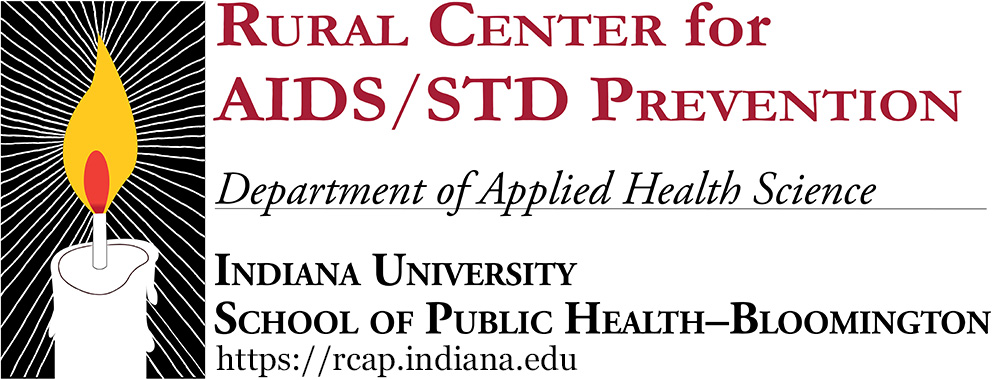
Today's rural communities, despite their stereotypical "safe" image, are not immune to many of the problems of urban areas, such as unprotected sexual behavior, drug and alcohol abuse, and diseases such as human immunodeficiency virus (HIV), acquired immunodeficiency syndrome (AIDS), and other sexually transmitted diseases (STDs). The spread of HIV and other STDs to rural areas of the United States is an important threat to public health. Multiple factors—including stigma, denial, and isolation—contribute to the challenge of STD prevention in rural communities.
Mission Statement
Founded in 1994, the Rural Center for AIDS/STD Prevention (RCAP) promotes HIV/STD prevention in rural America to reduce HIV/STD prevalence. RCAP is headquartered in the Department of Applied Health Science at Indiana University School of Public Health-Bloomington.
RCAP:
- provides accurate prevention resources to health professionals and the public
- develops and evaluates educational materials and approaches to rural HIV/STD prevention
- shares strategies that might work to overcome behavioral and social barriers related to rural HIV/STD prevention




